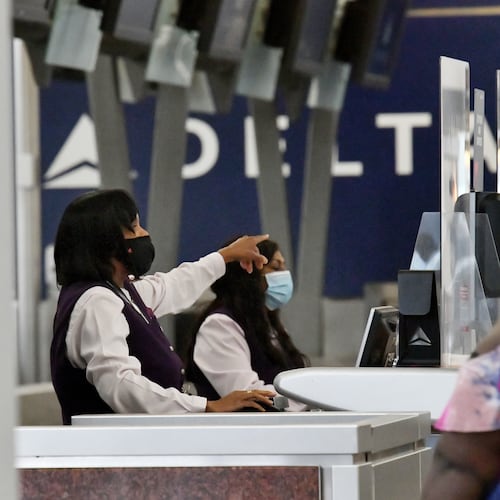It probably seemed a good idea at the time.
Open a large, well-stocked, top-quality outdoors store along a much-traveled highway at the edge of some prime north Georgia recreation areas. Who could resist, especially in 2006 when consumers had dollars to burn?
But Wilder Outdoors, which opened that November on Ga. 365 in Habersham County and closed in March 2009, likely was hurt by factors including a distant location, a horrible economy, the wrong product mix and too much competition, retail experts and shoppers said.
The failure, while not unusual for a business in a recession, could have ramifications for Republican Nathan Deal in next month's gubernatorial election against Democrat Roy Barnes. Deal initially invested $2 million in the store, started by his daughter, Carrie Deal Wilder, and his son-in-law, Clint Wilder, and continued to invest in it by guaranteeing a series of loans. Now, he owes $2.1 million which he has said he will pay.
Neither Deal nor the Wilders are talking about what went wrong with the store, and Deal previously said the matter is "not essential to the issue of who can govern this state and who can lead us in the right direction of where we need to go."
Barnes has said, "If you had a business, who would you want running it right now, me or Congressman Deal?"
Without details from Deal and the Wilders of their decision-making, it is hard to be certain what led to the store's failure. But The Atlanta Journal-Constitution asked several businesspeople and experts for their observations.
"It was just too much high-end stuff. It's the wrong type of economy for that. You've got to cater to middle-class people up here," said Jesse Turner, owner of Mountain Sports in Cleveland, Ga., which sells guns.
Turner said Wilder Outdoors was "really nice," but sold expensive gun scopes, for example, instead of less costly models that have a bigger potential clientele.
Location also may have played a role, as the store was built far from population centers along a rural road that is well-traveled but remote. Better, some visitors said, to have located closer to Atlanta where high-end customers are more likely to shop. Or if not there, then near a tourist draw such as an outlet mall.
Shoppers, they said, aren't likely to buy gear while en route to their destination. More likely, they buy it well in advance near where they live.
The store likely also was hurt by many of the same factors that have affected other small retailers across the country.
Bob Nelson, president of Power Retailing, a Phoenix-based marketing strategy firm and adviser to struggling retailers, said among their common problems is a lack of retail experience, limited name recognition compared to chains, and an inability to buy products at low cost because of small volumes.
"Even the best retailers are having a difficult time today," he said. "They're not growing, they're downsizing."
When in trouble, he said, small business owners often don't have experts to turn to for advice, or research to help direct them.
And independent, verifiable market research, as opposed to "gut feel," is critical when starting a business, said Bernie Meineke, director of the Small Business Development Center at Georgia State University, which provides consulting and training services to small businesses.
The economy, location and the product mix all likely played a role, said Ken Sturdivant, owner of Southern Fishing Schools in Cumming and operator of havefunfishing.com.
"It was a beautiful shop, golly. It was just in a bad place," he said. "They had $200 sunglasses. But those are hard to sell in the middle of nowhere."
Also, "The demand for outdoor equipment is just not there," he added. "It's a ripple effect from the economy. The money's just not there."
Barbara Franklin, owner of Franklin Gun Shop in Bogart, said, "It's bad for everybody. I don't think folks are spending any money at all. A lot of businesses in this area seem like they're thriving, then the next day they have a sign that they're closed."
"Back in 2006, investing in a luxury business, any luxury business, looked like a very good decision," said Pam Danziger, a luxury goods marketing expert.
But, she added, "What in 2006 looked like a good business decision, in the brutal light of 2010 looks totally dumb. Hindsight is twenty-twenty."
About the Author
Keep Reading
The Latest
Featured


